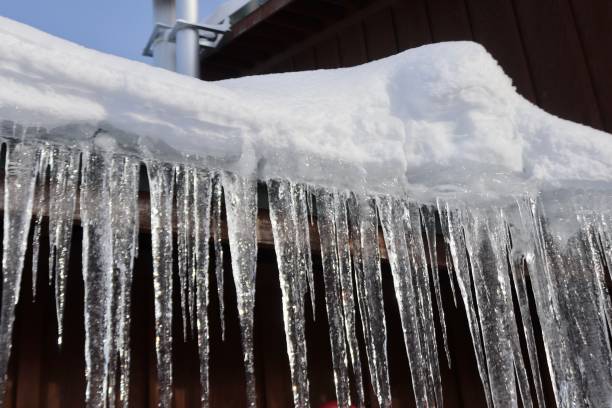Tips to Keep Your Pipes from Cold Weather Damage: Important Guidance
Tips to Keep Your Pipes from Cold Weather Damage: Important Guidance
Blog Article
Just about everyone maintains their own theory on the subject of Preventing and dealing with frozen pipes.

Winter can ruin your pipes, particularly by freezing pipelines. Below's just how to stop it from taking place and what to do if it does.
Intro
As temperature levels decline, the danger of frozen pipes rises, possibly causing costly repair work and water damages. Understanding how to avoid frozen pipelines is critical for homeowners in cool climates.
Prevention Tips
Protecting at risk pipes
Cover pipes in insulation sleeves or use warmth tape to protect them from freezing temperature levels. Focus on pipelines in unheated or exterior areas of the home.
Home heating techniques
Maintain interior areas effectively warmed, particularly areas with plumbing. Open up cabinet doors to allow warm air to flow around pipelines under sinks.
Exactly how to identify icy pipelines
Search for decreased water circulation from faucets, uncommon odors or noises from pipelines, and visible frost on exposed pipelines.
Long-Term Solutions
Structural adjustments
Take into consideration rerouting pipelines away from outside wall surfaces or unheated areas. Add additional insulation to attics, cellars, and crawl spaces.
Upgrading insulation
Invest in top notch insulation for pipes, attic rooms, and wall surfaces. Appropriate insulation aids keep consistent temperatures and lowers the risk of frozen pipelines.
Shielding Outdoor Pipes
Garden hoses and outdoor faucets
Separate and drain pipes yard hoses prior to winter months. Set up frost-proof faucets or cover outside taps with protected caps.
Comprehending Frozen Pipes
What creates pipelines to ice up?
Pipes freeze when revealed to temperature levels below 32 ° F (0 ° C) for expanded durations. As water inside the pipes freezes, it increases, putting pressure on the pipe wall surfaces and potentially creating them to rupture.
Risks and damages
Frozen pipes can bring about water disturbances, residential property damage, and costly repair services. Ruptured pipes can flooding homes and cause considerable architectural damage.
Indications of Frozen Water Lines
Identifying frozen pipelines early can prevent them from rupturing.
What to Do If Your Pipelines Freeze
Immediate activities to take
If you suspect frozen pipelines, maintain taps open to soothe stress as the ice thaws. Make use of a hairdryer or towels taken in warm water to thaw pipelines gradually.
Verdict
Stopping icy pipes requires proactive actions and fast responses. By comprehending the reasons, signs, and safety nets, house owners can secure their pipes throughout winter.
Helpful Tips to Prevent Frozen Pipes this Winter
UNDERSTANDING THE BASICS: WHY PIPES FREEZE AND WHY IT’S A PROBLEM
Water freezing inside pipes is common during the winter months, but understanding why pipes freeze, and the potential problems it can cause is crucial in preventing such incidents. This section will delve into the basics of why pipes freeze and the associated problems that may arise.
THE SCIENCE BEHIND FROZEN PIPES
When water reaches freezing temperatures, it undergoes a physical transformation and solidifies into ice. This expansion of water as it freezes is the primary reason pipes can burst. As the water inside the pipe freezes, it expands, creating immense pressure on the walls. If the pressure becomes too great, the pipe can crack or rupture, leading to leaks and water damage.
FACTORS THAT CONTRIBUTE TO PIPE FREEZING
Low Temperatures: Extremely cold weather, especially below freezing, increases the risk of pipes freezing. Uninsulated or Poorly Insulated Pipes: Pipes located in unheated areas, such as basements, crawl spaces, or attics, are more prone to freezing. Insufficient insulation or lack of insulation altogether exacerbates the problem. Exterior Wall Exposure: Pipes running along exterior walls are susceptible to freezing as they encounter colder temperatures outside. Lack of Heating or Temperature Regulation: Inadequate heating or inconsistent temperature control in your home can contribute to frozen pipes. PROBLEMS CAUSED BY FROZEN PIPES
- Pipe Bursting: As mentioned earlier, the expansion of water as it freezes can cause pipes to burst, resulting in significant water damage.
- Water Damage: When pipes burst, it can lead to flooding and water damage to your property, including walls, ceilings, flooring, and personal belongings.
- Structural Damage: Prolonged exposure to water from burst pipes can compromise the structural integrity of your home, leading to costly repairs.
- Mold and Mildew Growth: Excess moisture from water damage can create a favorable environment for mold and mildew growth, posing health risks to occupants.
- Disrupted Water Supply: Frozen pipes can also result in a complete or partial loss of water supply until the issue is resolved.
WHY CERTAIN PIPES ARE MORE PRONE TO FREEZING
- Location: Pipes located in unheated or poorly insulated areas, such as basements, crawl spaces, attics, or exterior walls, are at higher risk of freezing.
- Exterior Pipes: Outdoor pipes, such as those used for irrigation or exposed plumbing, are particularly vulnerable to freezing as they are directly exposed to the elements.
- Supply Lines: Pipes that carry water from the main water supply into your home, including the main water line, are critical to protect as freezing in these lines can affect your entire plumbing system.
- Underground Pipes: Pipes buried underground, such as those connected to sprinkler systems or outdoor faucets, can be susceptible to freezing if not properly insulated.
https://busybusy.com/blog/helpful-tips-to-prevent-frozen-pipes-this-winter/
:strip_icc()/snow-outdoor-faucet-pipes-4af65d1e5e904fb1aa7bf74071fe5d89.jpg)
I'm certainly very inquisitive about 6 Ways to Prevent Frozen Pipes and I'm hoping you liked the new post. Do you know another person who is serious about the niche? Why not promote it. We take joy in reading our article about Preventing and dealing with frozen pipes.
Schedule Your Service Report this page